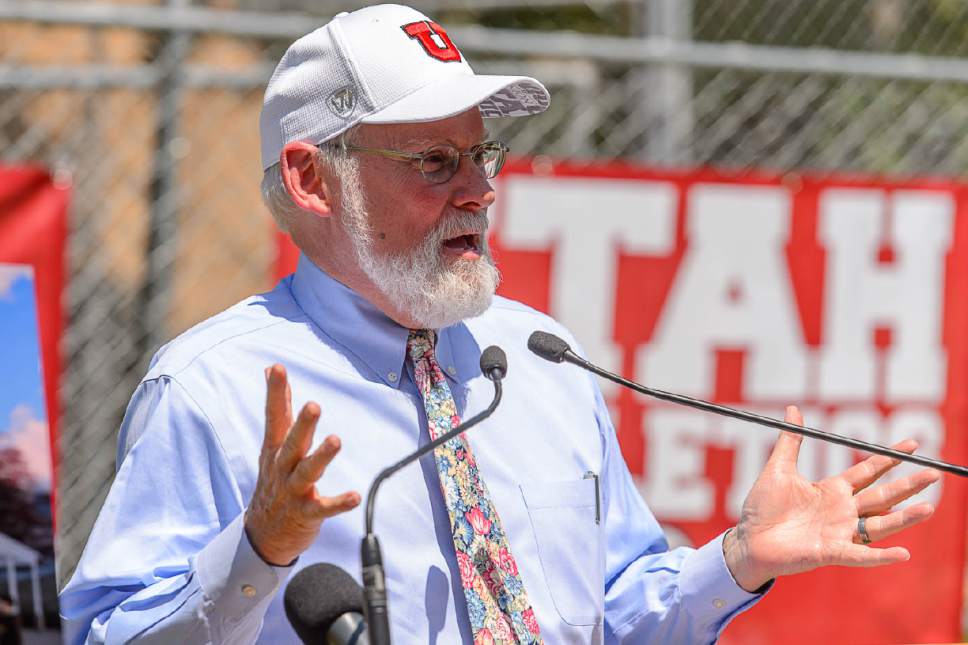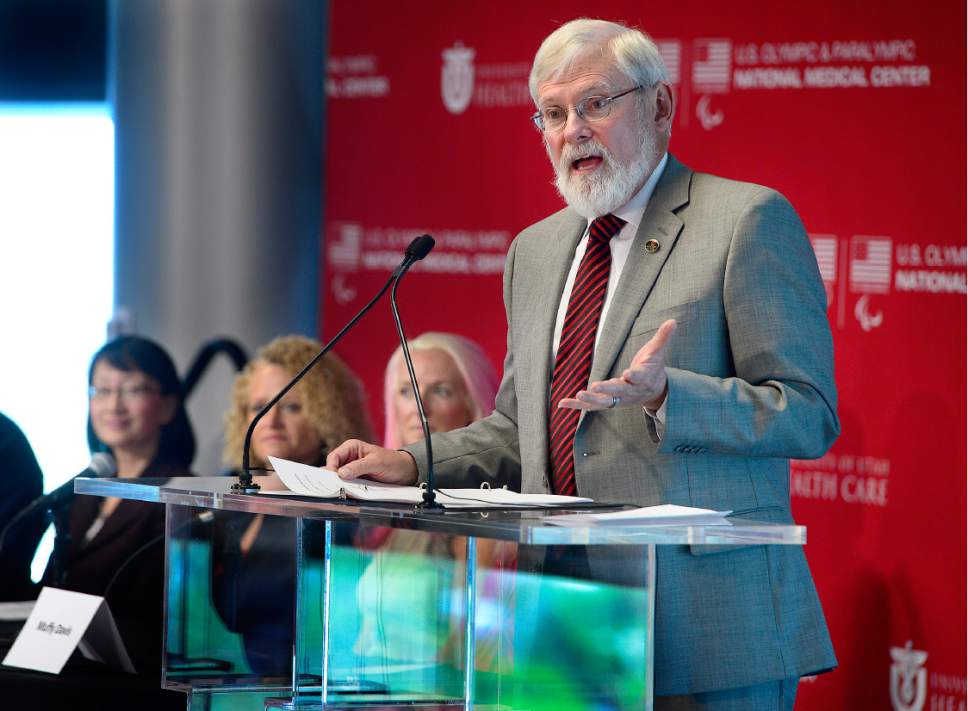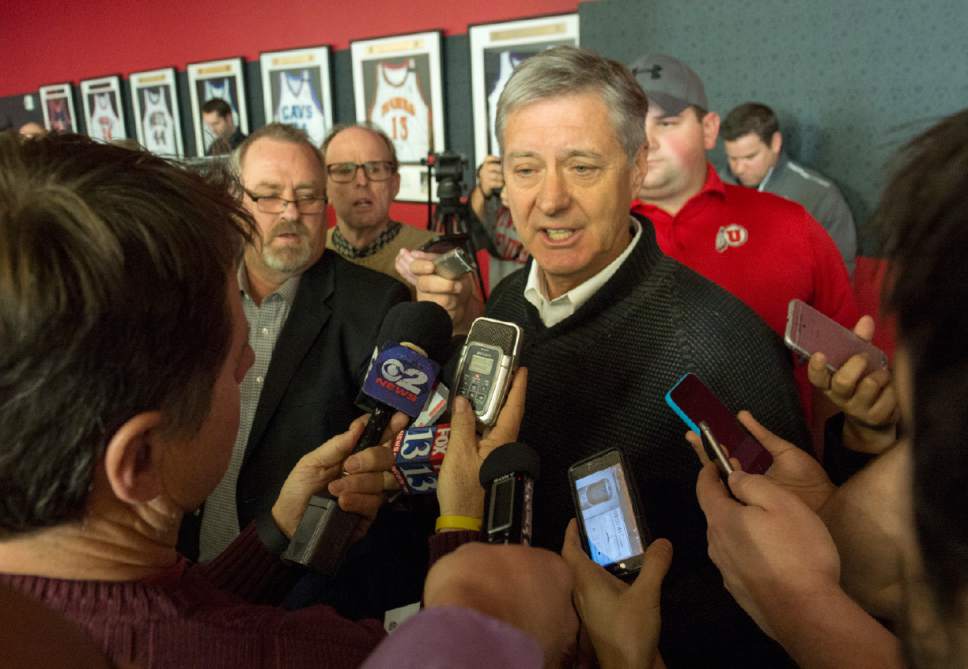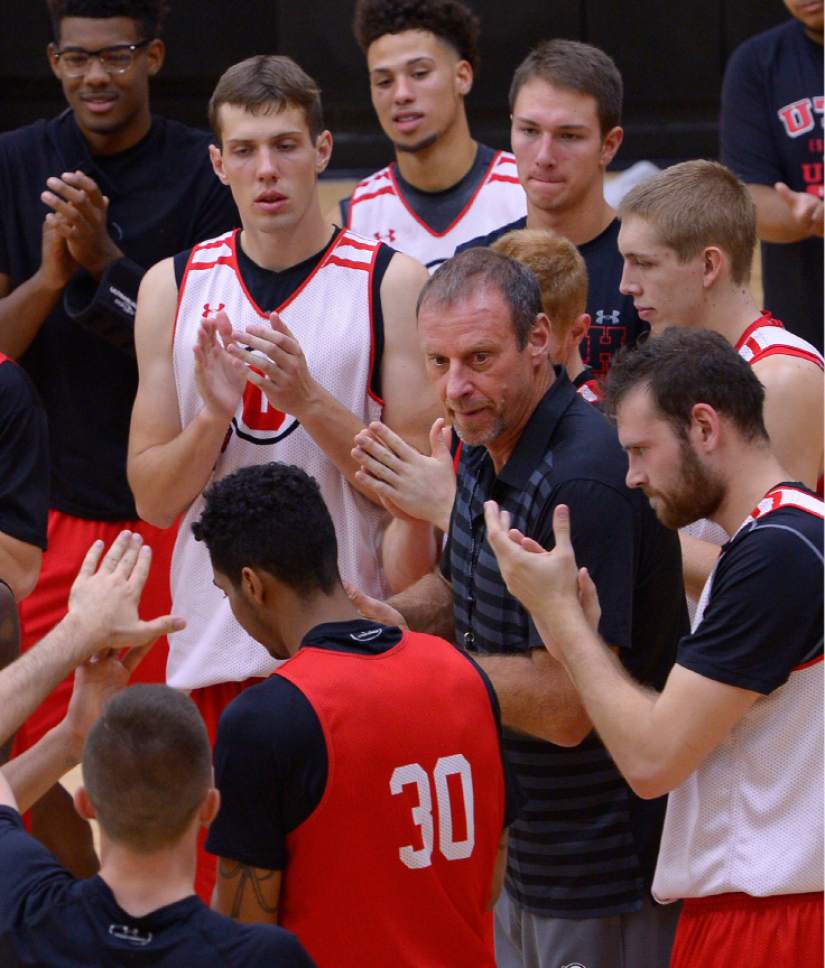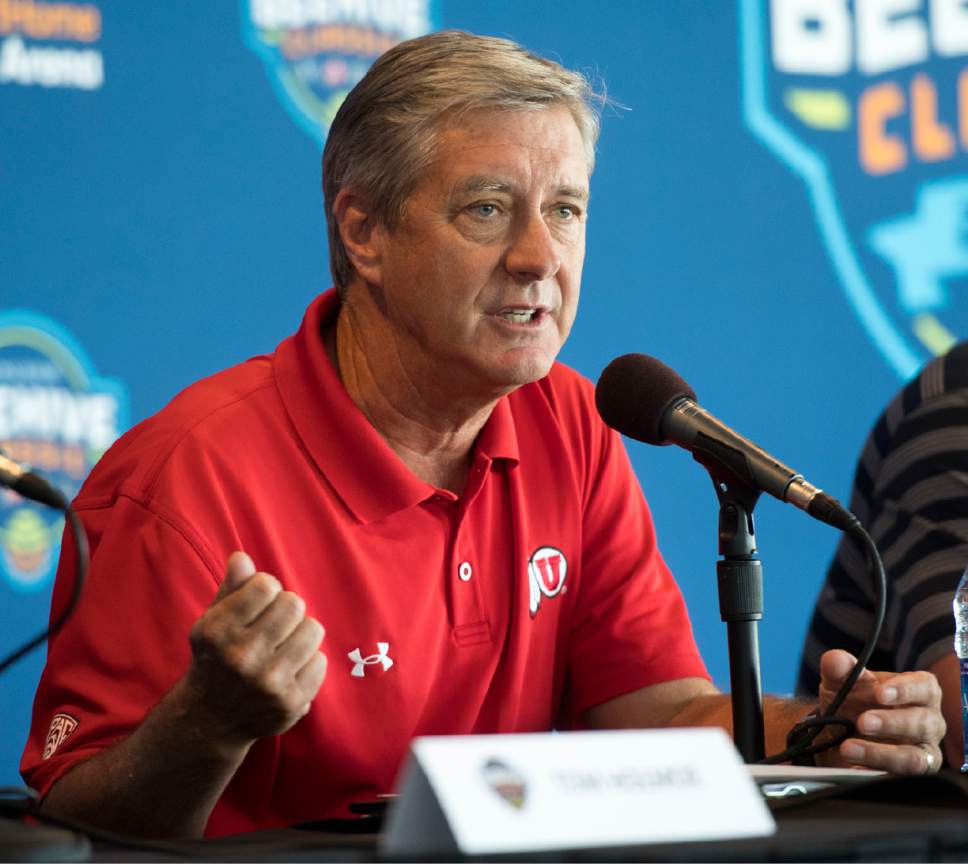This is an archived article that was published on sltrib.com in 2016, and information in the article may be outdated. It is provided only for personal research purposes and may not be reprinted.
A comprehensive legislative audit of the University of Utah athletic department set off no financial alarms. Instead, auditors suggested Tuesday that the Utes do some tidying up in reporting finances, tracking inventory and facility access, and hiring and drawing up contracts for employees.
Ordered in February by the state Legislature's audit subcommittee, the report recommended stronger adherence to university procedures across the board for Utah athletics — all of which the department agreed to address in a hearing at the Capitol on Tuesday afternoon.
The auditors also investigated Utah's buyout of the men's basketball series with Brigham Young University, a move that inspired legislators to take a look behind the curtain of the largest public athletic department in Utah, an agency that anticipates $72 million in revenue in the next fiscal year.
The U. had said basketball coach Larry Krystkowiak would pay the $80,000 BYU game-cancellation fee out of personal funds, but the money actually came from the school. Administrators, though, insisted that Krystkowiak was repaying the funds in four installments over four years, including one $20,000 payment already received.
Krystkowiak's payment came from his foundation, the Krystko Foundation.
Auditors couldn't verify the source of the funds, but the coach assured school administrators that the $20,000 came from his contributions — not from donors.
Legislators, who ordered the audit, expressed concern, but university officials said they knew that the money was Krystkowiak's.
The audit found that Utah's overall fiscal practices compared favorably to other Pac-12 institutions, particularly in how the department has handled its debt (now $4.68 million) since transitioning to the conference. But amid a fast-growing budget and skyrocketing coaching salaries, the auditors pointed to areas where Utah can secure loose ends.
"The report is our way of saying, 'Look, there's a lot of spending pressure in collegiate sports; let's make sure we're buttoned down and do this right,' " said Kade Minchey, who managed the audit team. "Utah is doing well when it comes to their peers, but that doesn't mean we can't do things better. Let's do everything we can to work efficiently and effectively."
Noting that coaching salaries and benefits had risen, 18 percent (women's soccer) to 112 percent (baseball), between 2011 and 2015, the auditors recommended more prudent spending practices for determining increases, extensions and bonuses for coaches.
While the department noted that salaries, such as football coach Kyle Whittingham's $3.3 million annual compensation, have risen with market demands in college sports, the report suggested that Utah should grow salaries through incentives, rather than through raises that are continent on postseason goals that rarely are met. The report noted that only gymnastics and skiing teams met "full performance expectations" during the years reviewed. It also recommended that there be more incentives in athletic director Chris Hill's contract for nonrevenue sports performance (sports outside of football and men's basketball).
"We'll make sure we'll do a better job of linking compensation to performance," Hill said in the hearing. "We'll be better about the bonuses we provide."
One of the most specific points in the audit looked into how the Utes paid off a buyout clause when they announced in January they would not play a planned men's basketball game against BYU. The cancellation sparked fury from many of the state's top officials, including a disapproving tweet from Gov. Gary Herbert, and seemed to lead to the interest in auditing the department.
Minchey said there was no specific mandate to look into the series: "We check all kinds of stuff. That seemed like something that should be reviewed."
Rep. Brian King, D-Salt Lake City, said during the hearing that — while he understood many Utah fans' uproar over a perception that the audit was retribution for the canceled basketball series — he appreciated the accountability that came out of the scrutiny.
"I'm grateful for what has occurred," he said. "There's been great professionalism from the U. of U. and the auditor general's office."
Another area of emphasis included inventory: The team found that many department items, including laptops, cameras, televisions and other equipment valued at up to $5,000 weren't tracked with the same scrutiny as other U. departments.
The auditors also found that the department lost track of 264 keys through the years, including 15 master keys. Despite the losses, many locks haven't been replaced in as many as 18 years. The report suggested the Utes upgrade to electronic locks — already completed in newer facilities — to update security.
House Speaker Greg Hughes, R-Draper, mentioned this point in the hearing, saying the Utes may be making themselves vulnerable to theft. Hill said the department would "take a hard-core look into keys."
While Utah athletics is far less subsidized than its in-state peers, the audit recommended that the U. boost its financial transparency by reporting indirect support from the university, which totaled $1.15 million in the 2015 fiscal year. Utah had not reported it because the funds went to auxiliary services, but the athletic department benefited from the funds, auditors found.
The report noted that Utah's debt is substantially less than peer institutions Washington State ($50 million), Oregon State ($30 million) and Cal ($25 million), but suggested the department could better stay on top of its spending, particularly in travel and equipment costs, which frequently went over budget between 2011 and 2015.
The report suggested stronger human resources practices in hiring, which it found had occasionally been waived when Utah hired a new coach. In one instance, auditors found that an employee who had been hired for a five-month term had remained for three years. Auditors also suggested stronger time-keeping practices, particularly for hourly employees.
U. President David Pershing agreed to all recommendations and said they were already being implemented in some cases.
"I'm sure no university president has looked forward to a legislative audit," he said. "Now we're through the audit, we can see positives for the university as a whole and certainly for athletics."
Minchey said the university, which housed his audit team in Rice-Eccles Stadium for several months over the course the audit, was very receptive.
"There's no doubt we've handled much more concerning things, but there's some good substantive auditing recommendations that need to be rectified," he said. "The department was excellent to work with. They agreed to every recommendation. This is one of those 'good' audits in that the agency sees the value of the findings."
The U. also was the recipient of flattering findings: The auditors highlighted Utah's high academic achievement scores and showed that the Utes had underspent their Pac-12 competition, yet managed to find success in football, basketball, baseball, softball and other sports.
King said he was "enormously impressed" by Utah's thriftiness in comparison to its peers: "Frankly, I would like to know how you do it."
Twitter: @kylegoon


